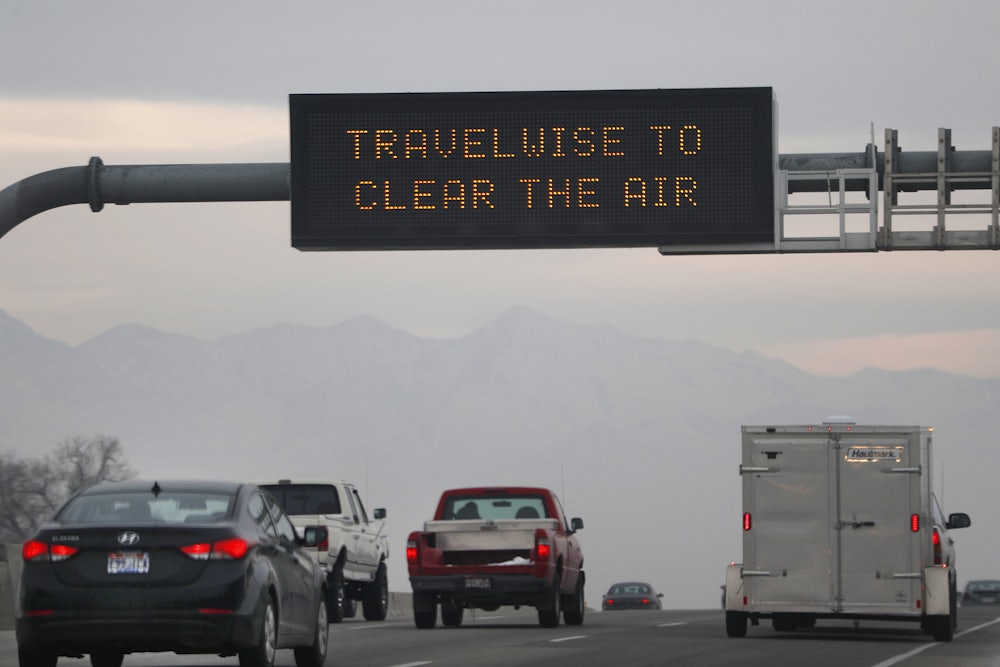The Environmental Protection Agency will soon announce plans to roll back yet another of former President Barack Obama’s regulations to prevent air pollution and global warming, according to The New York Times. This time, the regulations surround pollution from the transportation sector—which recently overtook the electricity sector to become the largest source of greenhouse gas emissions in the United States.
Known as the Corporate Average Fuel Economy standards, or CAFE, the rules would have required automakers to “nearly double the average fuel economy of new cars and trucks to 54.5 miles per gallon by 2025,” according to the Times, ensuring speedier development of hybrid and electric cars. Obama’s EPA projected that the rules “would have cut oil consumption by about 12 billion barrels and reduced carbon dioxide pollution by about six billion tons over the lifetime of all the cars affected by the regulations,” the Times reported. But America’s Big Three automakers—General Motors, Ford, and Fiat Chrysler—met with the Trump White House shortly after his inauguration in 2017 to argue that the standards would be too expensive and difficult to achieve. Thus, they’ll be rolled back.
Though EPA Administrator Scott Pruitt hasn’t formally announced the plan yet, he’s argued in the past that Obama’s pollution regulations actually made the air dirtier, because people don’t want to buy hybrid cars—they still want to buy pick-up trucks. “The whole purpose of CAFE standards is to make cars more efficient that people are actually buying,” Pruitt said in a March 13 interview with Bloomberg News. “And if you just come in and try to drive this to a point where the auto sector in Detroit just makes cars that people don’t want to purchase, then people are staying in older cars, and the emission levels are worse, which defeats the overall purpose of what we’re trying to achieve.”
Others aren’t buying the reasoning. “It’s a backwards argument,” said Dave Cooke, a senior vehicles analyst at the Union of Concerned Scientists. Automakers don’t need to make that many more more electric or hybrid cars than they do now to meet the requirements under the regulations through 2025, he said—and there are more than enough people who want to save money on fuel who will buy them. “These [rules] aren’t going to have a negative impact on fleet turnover, or on the industry as whole,” he said.
